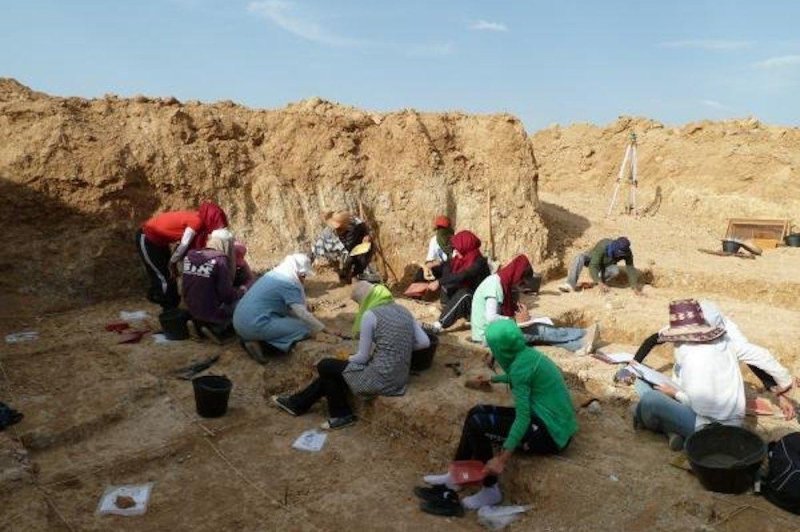Researchers recovered human-made stone artifacts in Algeria. Photo by National Research Center on Human Evolution
Nov. 30 (UPI) -- East Africa has long been hailed as the birthplace of humankind, but new research suggests the whole of Africa deserves the designation.
Archaeologists in Spain recently recovered ancient stone artifacts in Algeria, the oldest evidence of a human presence in North Africa.
Using paleomagnetism, or electron spin resonance, as well as the biochronology of large mammals recovered from the Ain Boucherit dig site, researchers dated the ancient stone tools to between 2.4 and 1.9 million years old. The oldest stone tools unearthed in East Africa date to 2.6 million years old.
The Algerian artifacts are similar to the Oldowan stone technology found in East Africa, but show subtle variations.
Researchers described the discovery this week in the journal Science.
"The lithic industry of Ain Boucherit ... shows that our ancestors ventured into all corners of Africa, not just East Africa," Mohamed Sahnouni, archaeologist at Spain's National Research Center on Human Evolution, said in a news release. "The evidence from Algeria changes the earlier view that East Africa was the cradle of humankind. Actually, the whole of Africa was the cradle of humankind."
Markings on the stones tools prove they were made and used with purpose and precision. Early humans at the site used the stones to skin and carve a variety of animals for consumption. They also utilized their hides and bones.
"The effective use of sharp-edged tools at Ain Boucherit suggests that our ancestors were not mere scavengers," said Isabel Cáceres, researcher at the Catalan Institute of Human Paleo-Ecology and Social Evolution. "It is not clear at this moment whether they hunted, but the evidence clearly shows that they were successfully competing with carnivores and enjoyed first access to animal carcasses."
Ancient hominin remains have been found throughout Africa, and researchers think it is likely the earliest human ancestors roamed across the Sahara, leaving behind archaeological clues like the stone tools found in Algeria.
Still, scientists can't confirm exactly who made the tools recovered from Ain Boucherit, as no human remains have been recovered from the site.
"Future research will focus on searching for human fossils in the nearby Miocene and Plio-Pleistocene deposits, looking for the tool-makers and even older stone tools," said Sahnouni.















